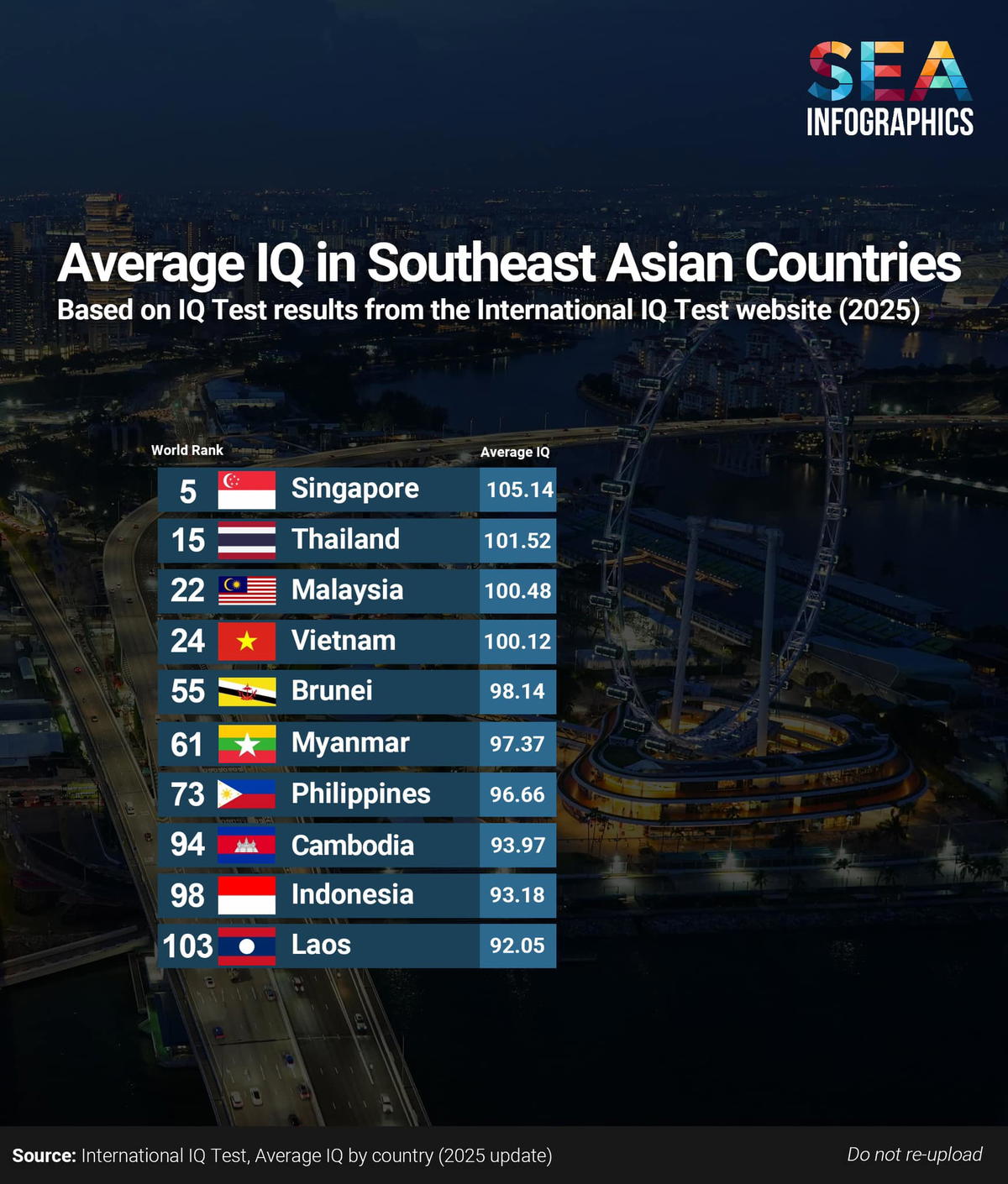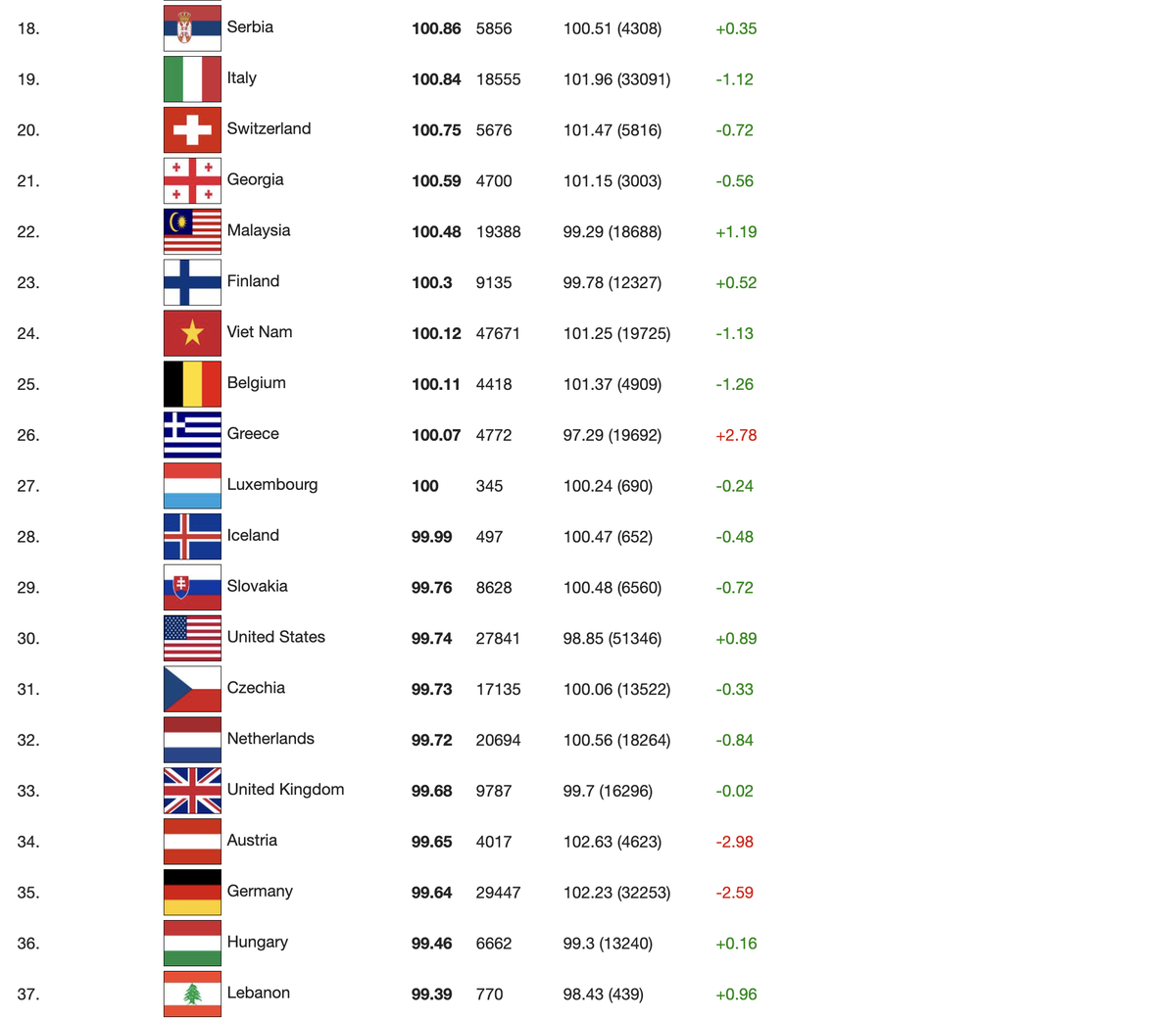Malaysians are no strangers to academic pressure, from UPSR to SPM, it’s practically a national sport.
But now, our mental agility goes beyond the classroom, with Malaysia landing among the top 25 smartest countries in the world.
According to the latest 2025 data released by the International IQ Test, Malaysia is ranked 22nd globally, with an average IQ score of 100.48. The results, based on over 19,000 participants, place Malaysia well above the global benchmark and ahead of many developed nations.

This achievement also reflects our standing within the region. In Southeast Asia, Malaysia now holds the third spot, behind Singapore (5th) and Thailand (15th).
When viewed on a larger scale, Malaysia ranks 10th across Asia, marking a significant milestone for the country’s intellectual profile.

However, not all neighbouring countries fared as well. Indonesia, for instance, was ranked 98th, with an average IQ of 93.18, highlighting a noticeable disparity in regional cognitive performance.

To put things into perspective, the global average IQ is 100. This figure, however, is heavily influenced by China, which not only has a large population around 18% of the world but also a remarkably high average IQ of 107.19.
Thanks to this combination of size and intellect, China significantly lifts the global average, offsetting lower scores from other parts of the world.
What’s behind the numbers?
Malaysia’s rising IQ isn’t just the result of good genes or strong academics. A combination of social, environmental, and cultural factors can shape a country’s overall IQ levels. Here’s a closer look at what drives the numbers:
- Infectious diseases
Research shows that high rates of infectious diseases can hinder cognitive development, especially in early childhood. Regions like Africa, which are heavily affected by such illnesses, often reflect this in their lower IQ averages. - Nutrition and diet
In a 2024 study, researchers found that children with balanced and healthy diets tend to score higher on IQ tests. Countries with better access to nutritious food and less food poverty naturally see higher national IQ scores as a result. - Intellectual activities and cultural habits
Regular engagement in intellectually stimulating activities also plays a role. For example, a 2022 study revealed that children who play chess frequently tend to experience boosts in their IQ. An earlier 1962 study also found that bilingual children scored higher on intelligence tests than those who spoke only one language. These findings suggest that environments which promote critical thinking, language learning, and mental challenges can positively influence IQ. - Genetics
Lastly, a 2013 twin study involving over 1,000 pairs of twins found that IQ is 50% to 80% heritable, showing that biology still plays a big role alongside environmental influences.



